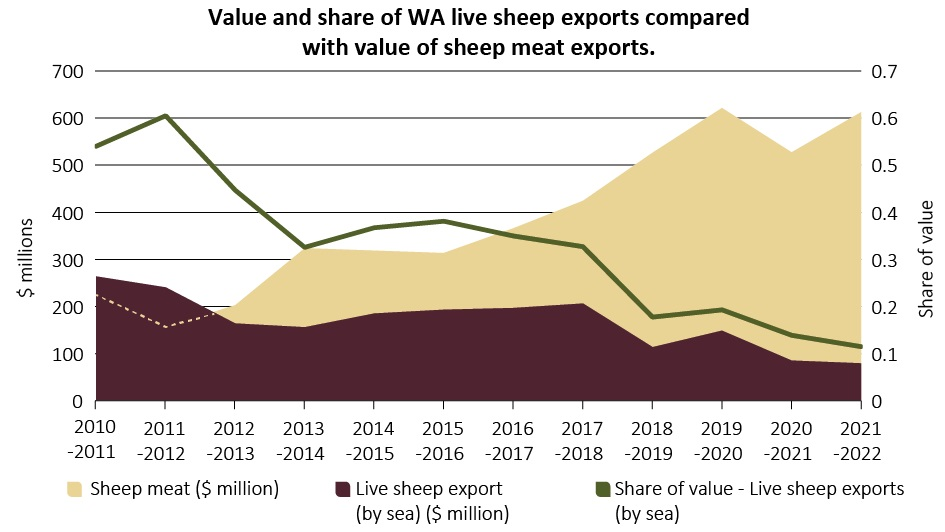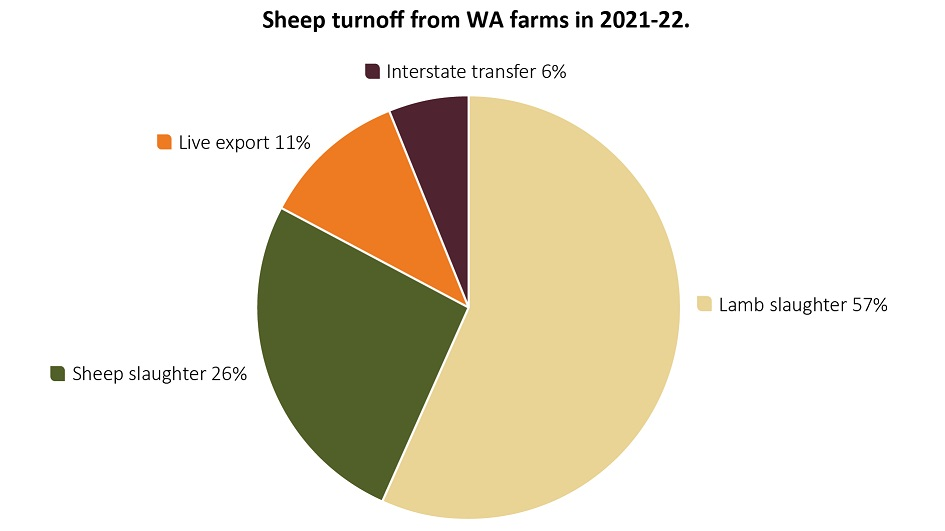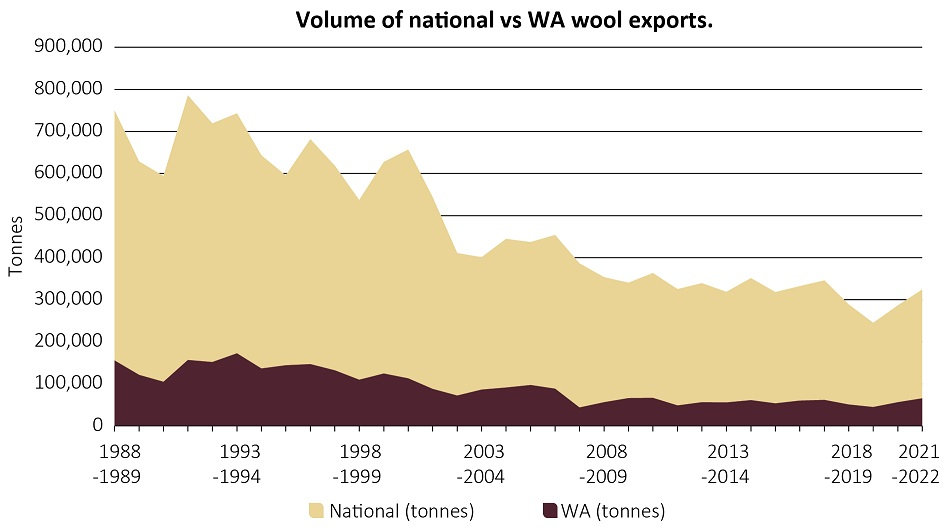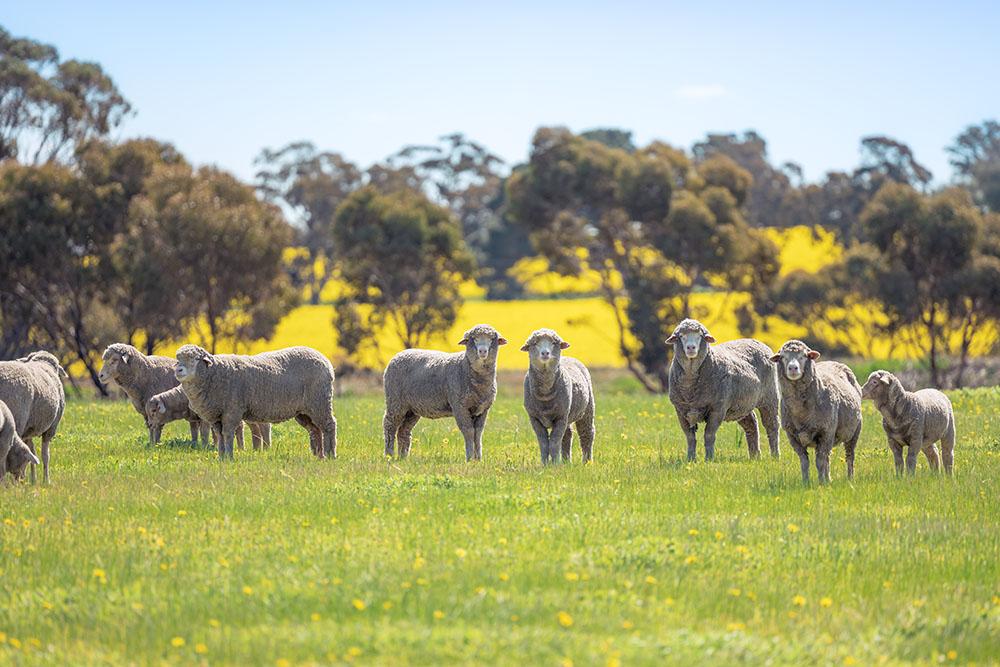Consultation to help inform how and when to phase out live sheep exports by sea has largely been completed. We would like to acknowledge and thank all who have contributed to our consultation process, and now provide some insights into what we heard.
Engagement
As noted in our 24 April 2023 statement, our initial approach to consultations did not meet the expectations of those interested in this process. We learnt from that feedback and adjusted our approach. We are pleased to report that since then we have engaged with over 2000 attendees at our in-person forums and over 330 at our virtual forums, as well as holding over 80 meetings with organisations and farmer groups. We appreciate that these consultations have been conducted in a constructive and respectful manner. We have also received over 800 written submissions and 3,300 survey responses.
The submissions received, which people have given permission for publication, are available to view on the Have Your Say webpage.
We met with a broad range of stakeholders to gain their insights on potential effects of the policy, when live exports by sea should be stopped, and options to support a transition to other markets and forms of production. These included producers, supply chain participants, industry representative bodies, exporting businesses, community groups and small business operators in regional areas, animal welfare organisations, state and territory governments, and trading partners.
We acknowledge this is an uncertain time for many. We heard and recognise the unease about the future of the sheep and related industries in Western Australia. Discussing the policy and its potential impacts on livelihoods has been unsettling for many people. We encourage anyone needing support – or who wants to help others – to follow up these social support and wellbeing resources. Services specific to WA include free financial counselling through Rural West, and WA-based mental health support services.
We found immense value in hearing the firsthand experiences of those we met and those who contributed in writing, and building our understanding of how this policy may affect people in the supply chain, their businesses and their communities. We also appreciated the ideas offered for how to approach the move away from live sheep exports by sea.
What we heard
Throughout the consultations, we heard how the phase out may affect individuals, businesses, communities and animals. An overwhelming majority of those people who attended our public meetings voiced their opposition to the government’s decision to implement its election commitment and phase out live sheep exports by sea.
Other stakeholders expressed their opposition via the survey or written submissions. We also heard the effects regional communities may face with the end of live sheep exports by sea. On the other hand, we heard from some stakeholders that the government’s decision to phase out should be implemented as soon as possible.
We have sought expert advice to support our consideration about how and when the phase out could be implemented, including what might be needed to help supply chain participants and communities to transition.
During consultations, common issues were raised relating to the phase out, including:
Sheep producers – Live export is used in WA to mitigate risk and diversify farm operations. This is due in part to the different climate, geography and limited domestic market opportunities in the west compared to the eastern states. We also learnt about the different production systems in WA and heard from some producers who have successfully shifted their businesses away from a reliance on the live export trade. Removing live exports will require producers to use a different avenue for turning off stock and make alternative production decisions.
Wool industry – Consultations highlighted potential challenges that may affect the wool industry when live export ceases. Many were concerned that without live export, farmers would not run the same number of Merinos for wool and this may erode prices or services associated with wool production such as shearing. There was also concern about the future viability of the wool exchange in WA if the state’s wool clip drops. Live export provides an option for farmers turning off older wethers or culled ewes and producers will need an alternative outlet for these sheep.
Cattle producers – Cattle producers were concerned about the future absence of mixed-species (cattle and sheep) voyages to the Middle East from Fremantle. They were also anxious about whether the closure of live sheep exports would be a precursor to changes for live cattle exports, noting the government has committed that the phase out will only apply to live sheep exports by sea.
Other businesses in the supply chain – Our consultations highlighted that there are many businesses and industries with some reliance on the live sheep trade. These include shearers, feed millers, animal husbandry contractors, agency services and veterinarians, as well as non-agricultural businesses that depend on economically sound local communities.
Broadacre cropping industry – Some producers who use live export are suggesting they will change their enterprise mix, reduce their sheep operations and increase grain production. They were concerned this may increase their exposure to drought and other climatic events, and broader risks. Other producers were worried about the phase out because of the potential flow-on impact to their businesses. For example, if grain production increases in WA, this may put downward pressure on grain prices and stretch the capacity of grain logistic supply chains which are reportedly already under pressure particularly in long-haul grain production areas of the state. Fewer sheep may decrease the demand for hay, straw and lupins, impacting other producers.
Processing industry – There is a current lack of capacity in the WA processing sector. Existing abattoirs are limited by factors such as access to labour, employee accommodation and cold storage capacity both at abattoirs and at ports. There are also concerns about the downward effect on prices paid by processors if live export is removed as a source of competition. The strong view was that exporters in the market put upward pressure on prices being paid by other buyers.
Community impact – Phasing out the live export industry may have consequences for the social and economic fabric of WA towns and regional services, continuing a trend of declining populations in some places. Communities may feel the broader effects of the phase out as businesses in the supply chain, such as transporters and shearers and other local retail and service sectors are also affected.
Wellbeing – The uncertainty regarding the implementation and transition arrangements of the phase out is adding to other concerns such as climate change, cost of input pressures, and other government policy and program changes. These combined factors may have a detrimental effect on the mental health of farmers who feel they have a lack of control over these decisions and their impact on their businesses and their communities. We also heard that wellbeing is impacted by current market and deteriorating seasonal conditions.
Infrastructure and logistics – Concern was expressed about the quality of existing infrastructure and its ability to accommodate a shift from sheep to more cropping. A growth in grain production may mean additional trucks on the road, impacting road conditions and safety. Other infrastructure such as feedlots or pre-export shearing facilities may need to be re-purposed or new facilities constructed. We also heard there are already substantial differentials in airfreight prices and capacity for sheep meat exported from WA compared to the eastern states.
Trade and exports – We were told that growing demand from new and existing markets for sheep meat, particularly from older sheep and the lightweight wether Merino, will likely be crucial for supporting the WA sheep industry. Existing trading partners would prefer the live trade to continue for food security and cultural preference reasons, complementing Australian meat imports. We heard that trading partners have made investments to meet Australian animal welfare requirements in support of the existing trade.
Animal welfare – We heard from people who are distressed by the long history of animal welfare incidents that have occurred on vessels and in importing countries, notwithstanding the Australian Standards for the Export of Livestock (ASEL) and the Exporter Supply Chain Assurance System (ESCAS). There was strong support for an early end to live sheep exports by sea. There was recognition that producers need time to adjust, or adverse circumstances could be created for existing stock. Animal welfare groups noted the importance of sheep being slaughtered as close to their point of origin as possible. They also emphasised there will need to be greater monitoring of sheep welfare and enforcement of the Australian Land Transport of Livestock standards if stock are moved by truck from western to eastern Australia.
Market trends
Market trends are informing our deliberations.
- Australia exports sheep meat to over 80 countries.
- WA’s live sheep exports have been declining due to many factors and sheep meat exports have been increasing.
Source: ABARES Trade Dashboard.
- A high proportion of sheep in WA are processed domestically.
Source: WA Government: The Western Australian sheep and wool industries.
- There is ongoing demand for WA wool. In 2021–22, WA wool exports were valued at $715 million.
Source: ABARES Trade Dashboard.
Ideas for the future
Through consultations and in written submissions, stakeholders offered suggestions for how to approach the transition away from live exports. Broadly, these ideas included:
- increasing sheep meat processing capacity in WA
- expanding international market opportunities for sheep meat
- supporting individuals facing change
- helping businesses including farmers plan and reinvest for the future
- supporting regional communities affected by the phase out
- encouraging industry to build a future whole of supply chain strategy for sheep in WA
- sustaining or improving animal welfare outcomes in the lead up to the phase out
- the potential for financial support for those affected by the phase out.
Next steps
We are considering the feedback from public consultations (verbal and written), as well as expert analysis on the potential economic, agronomic and other impacts of the phase out. We expect our report to the Minister for Agriculture, Fisheries and Forestry will describe what we heard and outline our recommendations on how and when to phase out live sheep exports by sea. It will be provided to the Minister by 30 September 2023.
UPDATED: The 30 September 2023 timeline has been extended and the panel will provide its report to the Minister for Agriculture, Fisheries and Forestry by 25 October 2023.
Phillip Glyde (Panel Chair), Sue Middleton, Heather Neil and Warren Snowdon.
For more information visit Phase out of live sheep exports by sea web page.





